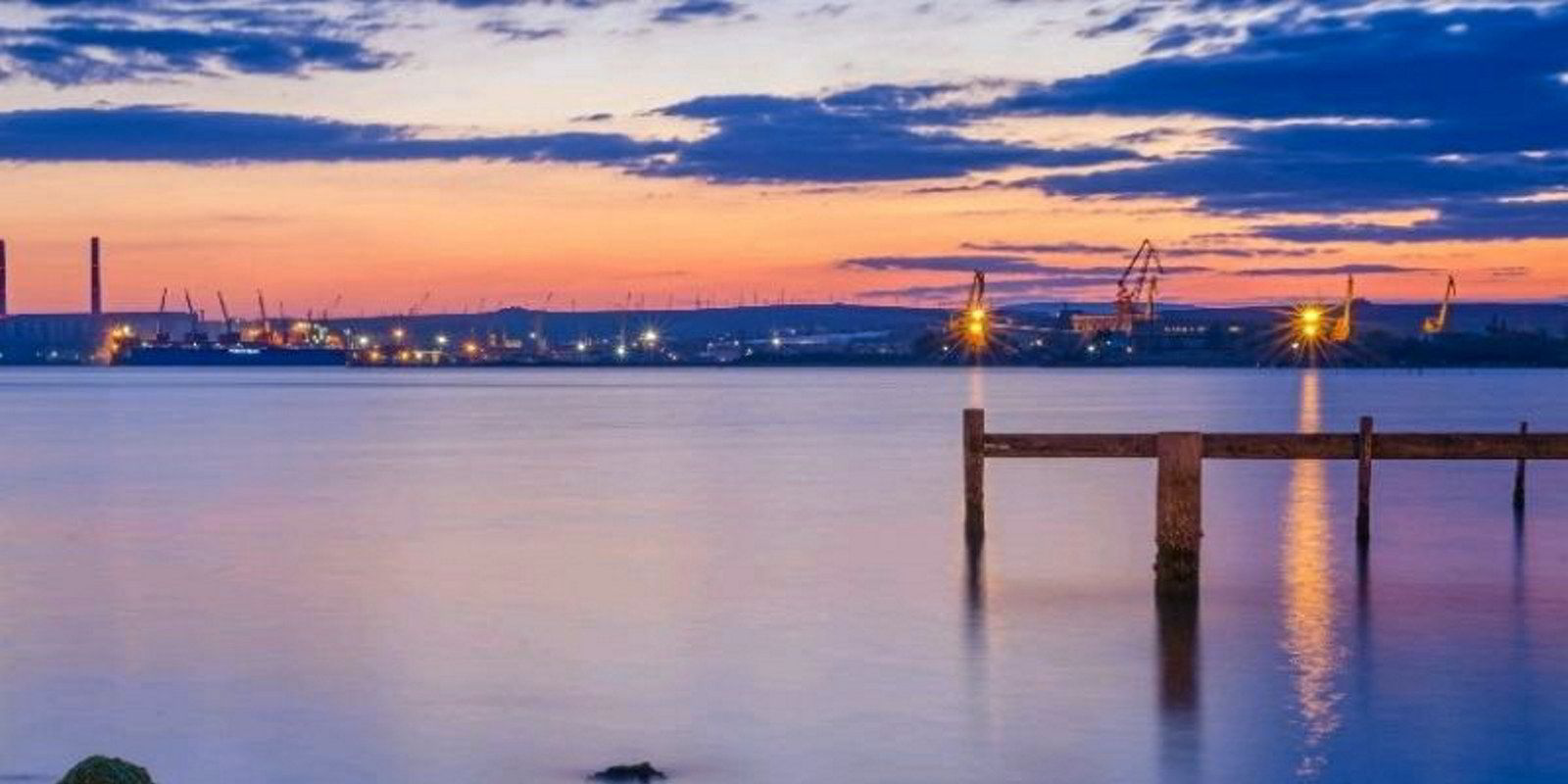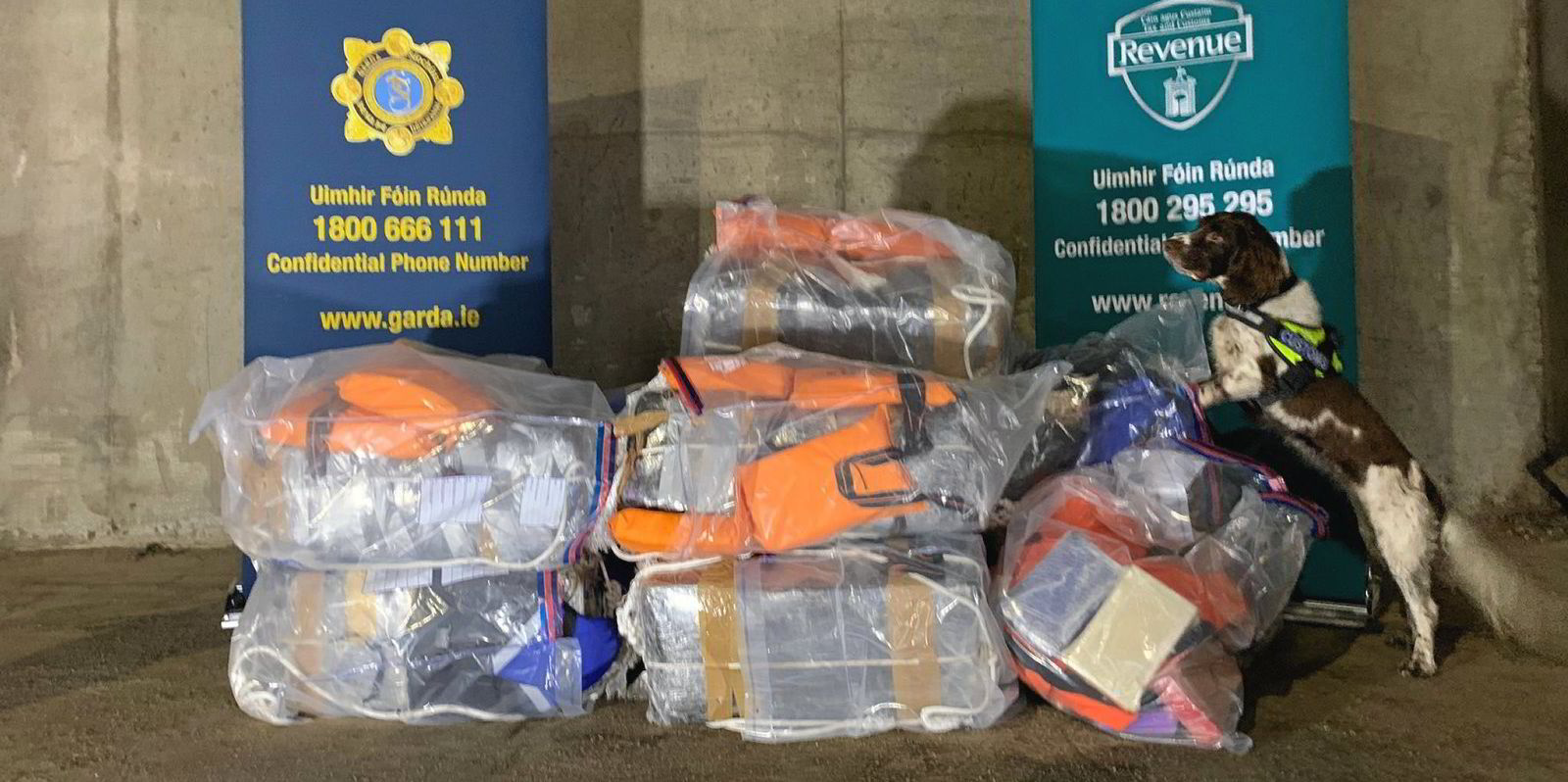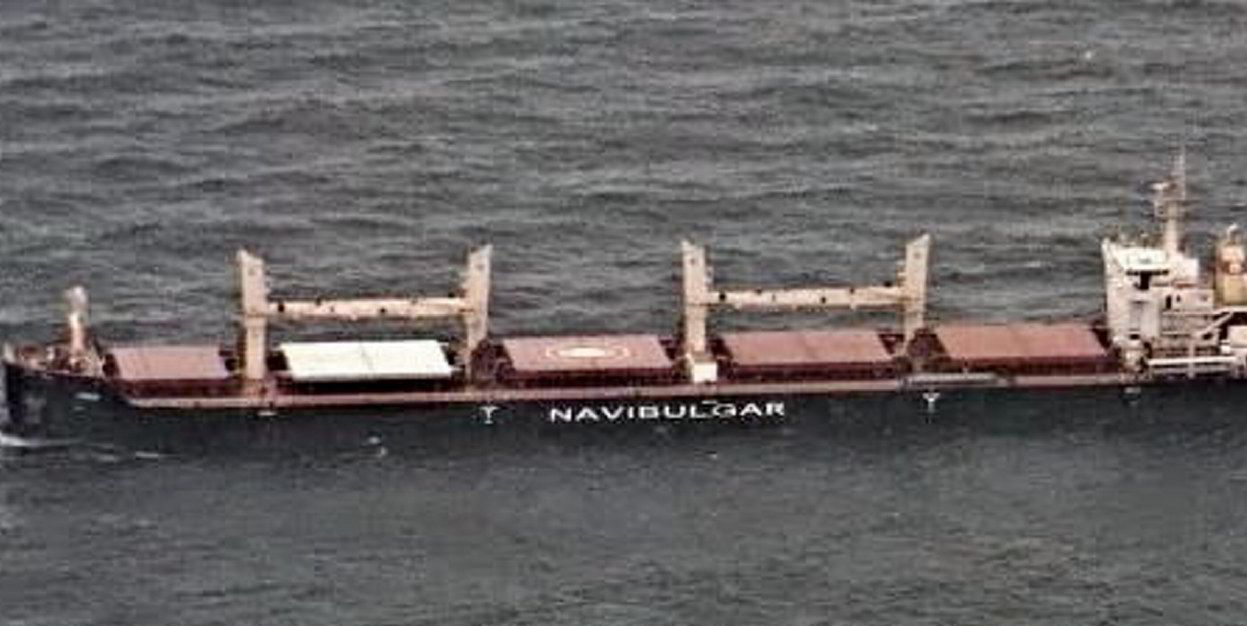Navibulgar made a rare public statement to dismiss any connection with a drug load found earlier this week in Ireland on one of its bulkers.
The Bulgarian company, by contrast, maintains strict radio silence about another of its ships held captive in Africa, most likely by resurgent Somali pirates.
In the drugs case, Navibulgar said that any drug trafficking on board the 32,200-dwt Verila (built 2022) would “not only constitute a serious crime, but also a gross violation of [Navibulgar’s] values, internal rules, policies and procedures”.
As TradeWinds already reported on Thursday, a drug-sniffing dog discovered 300kg of cocaine on board the ship in the port of Foynes.
Irish state broadcaster RTE reported that the cocaine was hidden in the cargo, with a buoyancy aid and a GPS locator beacon attached.
None of the crew are currently known to have been arrested.
In a statement on its website, Navibulgar promised to assist Irish authorities.
“We will give all requested cooperation in the investigation, hoping that any guilty person will be prosecuted to the fullest extent of the law,” the company said.
At the same time, Navibulgar added it had not received any official notification about the case from Ireland.
Piracy talks ongoing
In striking contrast with its prompt reaction to the drugs case, Navibulgar maintains strict silence about another ship hijacked earlier this month in the Arabian Sea, most likely by Somali pirates.
As of Friday morning, vessel trackers showed the 41,600-dwt Ruen (built 2016) at anchor about 6 km off the Puntland coast, 44 km southwest of the Somali settlement of Durdura.
Bulgarian authorities have been more talkative about the case.
The government in Sofia has officially said it considers the Ruen as a piracy victim, most probably by Somalis.
The country’s prime minister Nikolay Denkov said on 17 December he was expecting ransom negotiations to begin soon.
Bulgarian News Agency BTA cited Denkov as saying on 21 December that “negotiations for the release” of the ship and its crew “are continuing”.
In a separate statement, the country’s foreign ministry said on 21 December that the Ruen’s Bulgarian seafarers were all in good health — except one “injured” senior officer whom the ship’s captors have already released, as TradeWinds reported, and who is on his way back to Bulgaria.
The Ruen’s 18 seafarers initially managed to lock themselves up in the citadel when the assailants boarded the ship in the open Arabia Sea on 14 December.
Hours later, however, the pirates managed to break into the citadel and extract the crew.
The incident is believed to represent the first case of Somali piracy in years.
At the beginning, it was thought that the Ruen might have been abducted by the Houthis, who hijacked last month the 5,100-ceu car carrier Galaxy Leader (built 2002).
The Yemeni rebels, however, have made no statement on the Ruen yet — even though they are usually quick to assume responsibility for the dozen other attacks they have carried out against commercial ships lately, including the Galaxy Leader.
Bulgarian authorities are concerned with the Galaxy Leader as well, as a number of the vessel’s crew held captive by the Houthis are Bulgarian nationals.
Denkov and the country’s foreign ministry have said negotiations are underway to bring these seafarers back home as well.
Some other events have been pointing towards resurgent Somali pirates as well.
On 15 December and separately from the Ruen incident, the United Kingdom Maritime Trade Operations (UKMTO) warned of a Somali pirate group being active just off the country’s coast near the Horn of Africa.
The latest such warning was issued on 22 December, when the UKMTO reported receiving reports about “heavily armed personnel” attacking a dhow around Eyl, Somalia. That is about the same region in which the Ruen is held.






